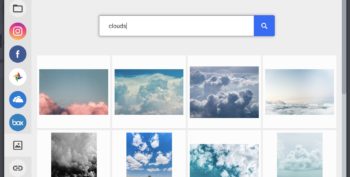Content Curation
Is content curation stealing and does it break copyright laws?
Feb 20, 2012
 The answer you get when you ask “Is content curation stealing and does it break copyright laws?” can vary a lot based on who you ask and what definition you use for curation. Copy and pasting a bunch of web articles from other authors and sticking them in your latest marketing email verbatim is theft. Blending a thoughtful and relevant collection of abstracts that link back to the original source is not: it’s curation (my opinion, i’m not a lawyer).
The answer you get when you ask “Is content curation stealing and does it break copyright laws?” can vary a lot based on who you ask and what definition you use for curation. Copy and pasting a bunch of web articles from other authors and sticking them in your latest marketing email verbatim is theft. Blending a thoughtful and relevant collection of abstracts that link back to the original source is not: it’s curation (my opinion, i’m not a lawyer).
I founded my most recent venture as a direct play on content curation because i saw so many small business owners struggling with their email marketing campaigns. It’s very costly to create original content (if you outsource) and it’s extremely hard and time consuming to know what to write if you want to do it yourself. Content curation provides a great solution for these problems (obviously, i’m for it). But it clearly does bring up a legal debate and this is backed up by our product users who frequently make this their first question.
Here’s a couple of thoughts on the subject:
Curate don’t aggregate (or steal)
Behave like a good museum director. To run a good photography exhibit on classic cars, a good museum curator doesn’t just stick any old picture of an Aston Martin or Ferrai on the wall that she finds on Flickr, instead she sifts through countless pictures from different photographers and sources and blends them together in to a compelling story that educates, informs and creates emotion. Web marketing curation should be similar. If you run a gardening business and you want to create a newsletter to email to your gardening club, don’t copy the first 5 articles you get back from a Google search on “gardening” (that’s aggregation), instead spend some time reviewing valid sources for gardening content, cherry pick a handful of articles that YOU think are high quality and blend them together as a compelling newsletter you can email out. If you only include a brief abstract from the original article in your newsletter and link back to the original source you’re not stealing, you’re curating (here’s an example).
You’re low on the food chain, dont worry
At its essence is Google a curation tool? You ask it a question and it gives you back a list of articles abstracts that link to the original content; is Twitter a curation tool or is it a tool aiding copyright infringement? I’ve just looked at my Twitter feed, and about 20% of the posts are a mini abstract linking to an article. The list goes on with LinkedIN, Tumblr, Facebook blah, blah, blah. No wonder so many of these companies jumped into the SOPA fiasco so vehemently; their very business models were under threat. This means that if you are legitimately curating, then you’re pretty low on the totem pool of who’s going to get clobbered first. Sorry, you’re not that important.
Is content curation stealing and does it break copyright laws? Time will tell where this legal debate roams but you can rest assured that as the web increasingly becomes about users sharing and recommending relevant content to each other, curation is here to stay. What other legal questions are on the horizon? Let the debate begin.
Related Articles:
- Eight keys to successful content curation (customerthink.com)
- Fair Use Of Online Content With Content Curation

Continue reading

